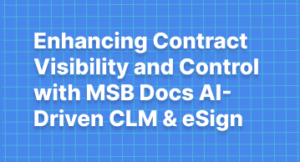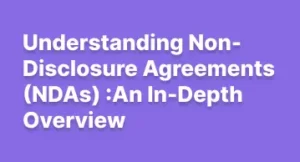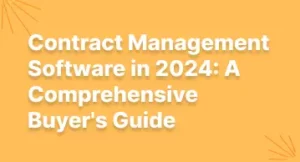Regulations on the legality and enforceability of Electronic Signatures: United Kingdom
Which laws govern electronic signatures in the United Kingdom?
The United Kingdom enacted a new law in 2016, the Electronic Identification and Trust Services for Electronic Transactions Regulations. This law was later amended by the Electronic Communications Act of 2000.
The UK was also subject to Regulation (EU) 910/2014 on electronic identification and trust services for electronic transactions in the internal market – otherwise known as “eIDAS” – before Brexit. On 31 January 2020, the UK left the EU, during which period they could implement the text of eIDAS while transitioning into a legal situation outside of the EU. They did this by having a new version of eIDAS (UK eIDAS), which was created by the European Union (Withdrawal) Act 2018 and Electronic Identification and Trust Services for Electronic Transactions (Amendment etc.) (EU Exit) Regulations 2019. The transitional period expired on 31 December 2020, when the UK implemented all its changes from EU legislation into UK law – with only a few minor amendments to reflect their new location beyond the scope of the EU.
Find out what qualifies as an electronic signature in the United Kingdom-
English law has a broad definition of electronic signatures. Section 7(2) of the ECA specifies that “an electronic signature is any electronic sound, symbol, or process attached to or logically associated with an electronic communication which is generated by means of an individual’s hand and allegedly affixed with their intent to sign.” This liberal approach allows English law to follow this definition. The UK’s eIDAS regulation provides three levels of electronic signatures as follows:
-
1. Simple- Data that can be stored electronically and is linked to or logically associated with further data in electronic format. This is the data that the signatory will use to sign.
-
2. Advanced- A type of electronic signature where the following criteria are met:
- An Advanced can be linked to its signatory.
- It is capable of identifying its signatory.
- It is created from the signature’s creation data that the signatory should be in sole control of.
- Any subsequent changes to the data are detectable.
-
3. Qualified- A digitally-recorded electronic signature verified by an advanced electronic signature creation device linked to a suitable certificate for electronic signatures.
The UK eIDAS Regulation has only minimal impact on pre-existing English law, so it doesn’t have much of an effect on English law under the ECA. This means that it doesn’t enforce standards that are more stringent than those already in place.
What are the documents that may be signed electronically?
Transaction types that generally can be signed with an electronic signature include:
- HR
- Corporate Resolutions (subject to any provisions to the contrary under the company’s constitutional documents)
- NDAs
- Consumer Transactions
- Education
- Life Sciences
- Technology sector
- Insurance
- Software Licensing
- Healthcare
- Chattel Paper
- Procurement (assuming there are no specific requirements to the contrary under the relevant procurement process)
- Documents to be Recorded
- Documents to be Notarized
It is not prohibited to use electronic signatures for the following types of transactions, but caution should be exercised before doing so:
- Real Estate
- Banking
- Lending
- Government Filings
“Electronic signatures” like the ones you used for your document will be accepted as prima facie evidence of authenticity in English courts. The “ECA does not address what evidentiary authority should be provided to any electronic signature.” It is ultimately a factual issue that would be decided based on each case. Fortunately, best practices are simple: making a clear record of an electronic trail and signing time would cover any potential evidentiary issues that could arise.
Are electronic signatures prohibited for any transactions?
You cannot use electronic records or signatures for the following:
- Various lease agreements, including leases of 3+ years, deeds of variation on a lease, leasing surrenders, and deeds supplementary to leasing (e.g., rent deposit deeds, licenses to change, assign, or underlet)
- Documents submitted for the deeds of transfer of title, application for adverse possession, legal mortgage/charge, the release of legal mortgage/charge, deed of easement, and deeds of variation, which are submitted for registration with the land registry and the land charges registry.
- Documents for HM Revenue and Customs, where stamp duty is payable.
- Some documents, such as company accounts, need to be registered with the UK’s Companies House, but its web-filing service doesn’t offer these documents.
- Legal documents like prenuptial agreements, separation agreements, deeds of variation, and deeds of disclaimer.
While we recommend using physical records and signatures as a means of execution for powers of attorney or statutory assignments, it is not recommended to do so with electronic files.
What factors led to the enforcement of digital signatures in the United Kingdom?
A document’s authenticity can be challenged, and the burden of proof is on the challenger to produce facts or evidence. The English courts will consider such documents as prima facie proof that the document was genuine. The person challenging it must present a compelling argument detailing why it is inauthentic. Maintaining a detailed audit log for the content shared through your platform would provide sufficient evidence for any evidential issues that arise.
What factors led to the enforcement of digital signatures in Canada?
The fact that an electronic signature is in electronic form does not negate its effect if it is permissible under and in compliance with applicable law. The party seeking enforcement may need to provide additional evidence proving the signature’s validity if the authenticity is challenged.
*Disclaimer: This page is intended to provide general information without any risks associated with legal advice. Though this page may contain some general legal information, it should not be used as an alternate for legal advice in your jurisdiction. You should always consult with an attorney or other professional before making any decisions on your own. MSB Docs provides this material “as-is,” and they disclaim any responsibility regarding its use. MSB Docs makes no representation or warranty of any kind, including guarantees or warranties of merchantability, fitness for a particular purpose, or accuracy of this material.





